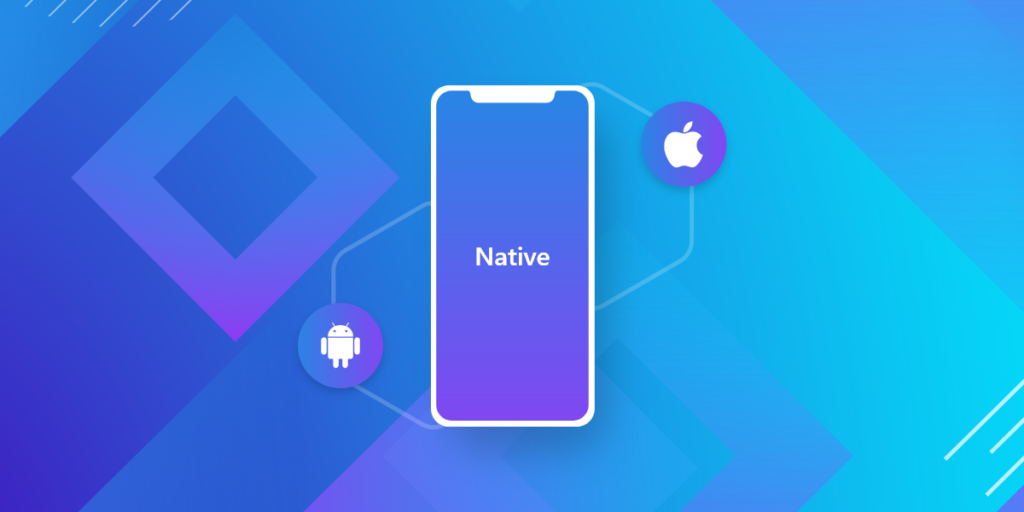
When it involves cell app improvement, developing a desire on which platform to apply can be nerve-wrecking. The native, hybrid and cross-platform improvement tactics have one-of-a-kind benefits and change-offs that ought to be truly understood as they’re many and it’s hard to choose among them. In this blog publish, we intend at demystifying those so that you make a knowledgeable choice in step with your undertaking requirements, budget and timeline.
So, which is the best mobile app development platform for your project? Let’s go through one-by-one and find the right solution.
Table of Contents
I. The tailored approach of Native App development
Native app improvement is building apps for a selected mobile running device (OS) along with iOS (Apple devices) or Android (gadgets jogging at the Android OS). These apps are developed the use of the platform’s personal programming languages and tools so that they exploit the total potential of hardware and software of such devices.

1.1. Advantages of native app development
- Optimal performance: Native apps are designed to seamlessly combine with the device’s hardware and software program to offer optimum performance, responsiveness, and clean user revel in.
- Access to all device features: The full range of device particular capabilities including cameras, GPS, sensors and push notification may be utilized by native programs.
- Platform-specific user experience: Native apps adhere to the respective platform’s layout recommendations, offering a acquainted and intuitive person revel in for customers accustomed to that particular OS.
1.2. Native app development disadvantages
- Increased cost of development: Developing separate applications for each platform involves the need for dedicated development teams and resources leading to higher costs.
- Different codebase management: Maintaining and upgrading applications may be time-consuming and resource-intensive as there are different codebases involved in different platforms.
- Extended period of development: The development cycle can be lengthened when developing native apps for many platforms, since each app must be built and tested separately.
II. Key notes about Hybrid App development
In hybrid app improvement, there are factors from both internet and native technologies, which makes it the pleasant. These apps are essentially web applications in a native container that can access some device features while using HTML, CSS, JavaScript.

2.1. Advantages of hybrid app development
- Platform agnostic: A single codebase allows hybrid apps to run on all major mobile operating systems, thus reducing workload considerably.
- Rapid application development: In comparison with native apps, web-based hybrid ones can be created much faster.
- Simple integration with web content: Hybrid application solutions have an easy way of integrating web content and services hence they are suitable for content-rich contexts.
2.2. Drawbacks of hybrid app development
- Performance limitations: Hybrid apps may be not as swift as native apps, especially for resource-intensive tasks or animations.
- Limited access to device features: While hybrid apps can access some device features, their access may be restricted in comparison with the ones of native apps.
- User experience inconsistencies: Hybrid programs may ignore platform-unique design pointers, therefore resulting in consumer reveal that is less intuitive.
The motive of move-platform app improvement is to bridge the space between native and hybrid techniques by developing an unmarried codebase that may be deployed across a couple of structures. Apart from offering abstractions and APIs for accessing local tool features, this has been performed via frameworks like React Native, Flutter, and Xamarin.
III. Highlighted advandtages of using cross-platform app platform

Cross-platform mobile app can convince the pros of both native and hybrid app. The cross-platform app development brings several highlighted advantages including:
- Shared codebase: Apps are built on multiple platforms using a single code base which reduces development effort as well as cost associated with it.
- Near-native performance: Cross-platform frameworks seek to achieve the performance similar to those of native mobile applications by interacting directly with hardware devices and APIs.
- Consistent user experience: It offers cross-platform applications an option to adhere to platform-specific design guidelines hence providing more natural user interface design.
IV. Mobile app development platforms: Choose the right way to go
When choosing which way to adopt for your mobile app development project, look at the following:
- Project requirements: Check the specific requirements of your app like performance needs, device feature access and user experience expectations.
- Development team skills: This involves evaluating team’s expertise and familiarity with programming languages, frameworks, or tools associated with each approach.
- Budget and timeline: An example is that native app development usually comes with higher costs and longer development cycles while hybrid and cross-platform approaches can save on cost as well as time.
- Target audience and platforms: For instance, if your app has to reach a broad audience across multiple platforms then cross-platform or hybrid approaches may be more suitable whereas for platform-specific apps native development might be the way to go.
- Long-term maintenance: Consider long term maintenance and update requirements for your app since native apps require separate codebases for each platform while hybrid and cross-platform apps have a shared codebase.
Conclusion
Finally, there is no one-size-fits-all solution; whether it will be native, hybrid or cross- platform depends on the unique demands; constraints; goals of your project. It’s important to carefully compare those factors and weigh the pros and cons of every technique earlier than making a knowledgeable choice.
Remember, the mobile app development panorama is constantly evolving, with new technology and frameworks emerging frequently. Stay updated with industry traits and best practices to ensure your app remains aggressive and offers an unbroken user revel in across platforms.
Author bio
| William Dawsey is Vice President of Sales for Finance and Payments Technologies at Chetu, a global provider of world-class custom software development solutions. William has nearly a decade of experience in the financial technology space and has helped numerous brands and institutions develop and integrate the latest in POS and FinTech solutions. William Dawsey facilitates programmers with expertise in utilizing cloud-based, web, and mobile solutions for financial service modules such as payment gateways and POS software, accounting & tax preparation software, plus banking and finance service modules. |












![[SALE OFF] Discount 30% All Premium Extensions On Christmas And New Year 2025 christmas-and-new-year-2025](https://landofcoder.b-cdn.net/wp-content/uploads/2024/12/christmas-and-new-year-2025-1-218x150.png)






